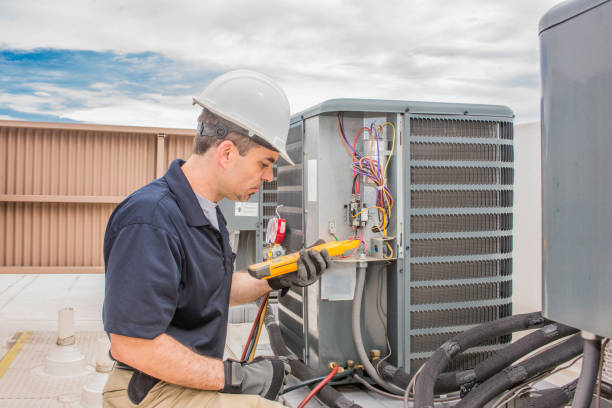Mastering Comfort: The Ultimate Guide to Heating and Air Conditioning
Mastering Comfort: The Ultimate Guide to Heating and Air Conditioning
Blog Article
Creating a comfortable living environment is essential for our well-being, and one of the key factors in achieving that comfort is effective heating and air conditioning. The right HVAC system not only helps to maintain an ideal indoor temperature but also improves air quality, enhances energy efficiency, and contributes to overall health. As seasons change and temperatures fluctuate, understanding how to master your heating and air conditioning systems can make all the difference in your home.
In this ultimate guide, we will explore everything you need to know about heating and air conditioning, from selecting the perfect system for your needs to practical maintenance tips that will extend the life of your equipment. Whether you are a homeowner looking to upgrade your existing setup or simply seeking to understand how these systems work, we aim to equip you with the knowledge to ensure that your indoor environment remains comfortable year-round.
Choosing the Right System
https://www.bostonconstruct.com
Selecting the right heating and air conditioning system for your home is a crucial decision that directly affects your comfort and energy bills. Start by assessing your space and its specific needs. Consider the size of your home, the number of rooms, and any specific issues like drafts or sunlight exposure that may affect temperature regulation. You also need to think about your climate; a system that works well in a moderate climate may not suffice in areas with extreme temperatures.
Next, research the different types of systems available, such as central air conditioning, ductless mini-split systems, and heat pumps. Each system has its advantages and disadvantages. For instance, central air conditioning is often ideal for larger homes, providing even cooling throughout. On the other hand, ductless systems can be more efficient for smaller spaces or homes without existing ductwork, allowing for zoned temperature control.
Finally, don’t overlook the importance of energy efficiency. Look for systems with high Seasonal Energy Efficiency Ratio (SEER) ratings for air conditioning and Annual Fuel Utilization Efficiency (AFUE) ratings for heating units. Investing in a more efficient system can lead to significant savings on utility bills in the long run. Additionally, consider the brand reputation and warranty options available, as these factors can also influence your long-term satisfaction with the system.
Energy Efficiency Tips
Improving energy efficiency in your heating and air conditioning systems can lead to significant savings on your energy bills. Start by regularly cleaning or replacing filters. Clogged filters can restrict airflow, forcing your system to work harder and consume more energy. A clean filter not only improves air quality but also enhances the efficiency of your system, allowing it to operate smoothly.
Another effective strategy is to utilize a programmable thermostat. This device allows you to set specific temperatures for different times of the day, ensuring that your heating and air conditioning systems only run when needed. By adjusting settings while you are away or asleep, you can maintain comfort without unnecessary energy consumption. Additionally, consider zones within your home; conditioning only occupied spaces can further reduce energy usage.
Lastly, sealing leaks in your ducts and ensuring your home is properly insulated can dramatically increase efficiency. Check for gaps or cracks around windows and doors, as these can allow conditioned air to escape. Applying weather stripping or caulk can help create a tight seal. Proper insulation in your home will help maintain desired temperatures, reducing the workload on your heating and air conditioning systems and enhancing overall energy efficiency.
Maintenance and Troubleshooting
Regular maintenance is crucial for ensuring that your heating and air conditioning systems operate efficiently. This includes changing air filters every one to three months, cleaning dust and debris from vents and registers, and checking for any visible issues like leaks or corrosion. Scheduling professional inspections at least once a year can help catch potential problems early, ensuring that your systems run smoothly.
If you notice unusual noises, inconsistent temperatures, or a sudden increase in your energy bill, these could be signs of a malfunction. Start by checking the thermostat settings and ensuring that all vents are open and unobstructed. If problems persist, it may be time to call a technician who can perform a more thorough diagnosis and repair any underlying issues.
Additionally, understanding basic troubleshooting techniques can save you time and money. Always ensure that your circuit breakers are functioning properly and that the power supply is connected. Familiarize yourself with the user manual for your heating and air conditioning units, as it often contains useful tips and troubleshooting guidelines that can enhance your ability to address minor issues on your own.
Report this page
